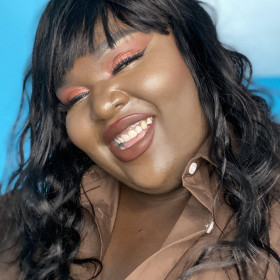Submissions for Penguin X BBC’s WriteNow campaign are currently open as they search for new aspiring fiction writers from underrepresented backgrounds.
In light of this, we spoke to Penguin’s editors who have put together some invaluable advice to help those who enter perfect their submissions.
WriteNow submissions close on 8 January and a free seminar for everyone who applied will take place on 21 January 2023 allowing all budding writers to come away with something.
Emily Griffin, Publishing Director of Fiction at Century Books UK, Penguin Random House
I publish fiction across a range of genres, from crime and thriller to historical and romance. For me, there are two things that I always look for when I’m reviewing a manuscript. The first is the concept or the ‘one-line pitch’. Is it a hook that feels fresh and distinctive? Can I identify a readership who will be pulled in by it? Is it something that can be pitched succinctly in a way that will instantly grab attention? The second is narrative voice. It’s much harder to quantify what makes a strong narrative voice – but you know it when you see it. I’m sure we’ve all read novels where we feel immersed in the world of the novel and invested in the characters. And when you discover a new voice with that quality as an editor there’s no better feeling!
The simple truth is that there’s no right way to write a novel – and no magic formula for success – but if you’re telling a story that matters to you, that’s a very good place to start. Added to that we want to see characters that feel rounded and act with clear motivation, as well as a story with narrative direction and chapters that end in a way that leaves you itching to read ‘just one more’.
Ultimately, we’re looking for potential, not polish. The key is to give us a sense of the story you want to tell and your voice. From there our mentors will work with you to make your novel the very best it can be.
Rebecca Hilsdon, Editorial Director at Michael Joseph, Penguin Random House
We are actively looking for diverse voices in fiction and want to hear from a broad range of people and experiences when it comes to the WriteNow scheme. On top of that, all great commercial fiction starts with a brilliant idea. In recent years editors have been searching for novels with a great concept or ‘hook.’ This means we’re particularly interested in finding a unique, fresh idea that hasn’t been done before which we can distill into a snappy elevator pitch. This helps entice readers to pick up your novel on a crowded bookshelf!
We are also looking for a great ‘voice’. This means it’s important to find your own unique writing style which could combine humour and pathos to ensure a book has depth while also providing an entertaining and engrossing read. It’s also important to think carefully about your characters – what is their purpose in the novel? How do they move the narrative along and how are readers supposed to respond to them? This is also a good way of thinking when it comes to plotting and pace. Look at each of your chapters and ask yourself ‘what am I trying to achieve from this chapter? What new piece of information should be discovered by readers through this scene?
Some writing days can feel hard – you may be able to write 2,000 words or 2 words, but the important thing is to keep going! You should feel proud that you are writing a novel and being creative and we’re so excited to read all your submissions. Good luck!
Željka Marošević, Editorial Director at Jonathan Cape, Penguin Random House
One of the top things I’m looking for when I’m reviewing a novel is a strong voice. I’m looking for an original perspective that immediately interrupts my present and draws me into the story the writer wants to tell. My advice to writers would be to read as much as you can and fill your head with the voices of others, but when it comes to your own writing, lean into specificity and all the things that are unique to you and how you see the world.
THEMES – Narrative voice and elevator pitch
“There are two things that I always look for when I’m reviewing a manuscript. The first is the concept or the ‘one line pitch’… The second is narrative voice.” – Emily Griffin
Strong narrative voice:
- 'It’s much harder to quantify what makes a strong narrative voice – but you know it when you see it. I’m sure we’ve all read novels where we feel immersed in the world of the novel and invested in the characters. And when you discover a new voice with that quality as an editor there’s no better feeling!’ – Emily Griffin
- “We are actively looking for diverse voices in fiction and want to hear from a broad range of people and experiences when it comes to the WriteNow scheme.” – Rebecca Hilsdon
- “We are also looking for a great ‘voice’. This means it’s important to find your own unique writing style which could combine humour and pathos to ensure a book has depth while also providing an entertaining and engrossing read.” – Rebecca Hilsdon
- “One of the top things I’m looking for when I’m reviewing a novel is a strong voice.” – Željka Marošević
‘Elevator pitch’ / Unique Hook:
- “The first is the concept or the ‘one line pitch’. Is it a hook that feels fresh and distinctive? Can I identify a readership who will be pulled in by it? Is it something that can be pitched succinctly in a way that will instantly grab attention?” – Emily Griffin
- “In recent years editors have been searching for novels with a great concept or ‘hook.’ This mean we’re particularly interested in finding a unique, fresh idea which hasn’t been done before.” – Emily Griffin
- “All great commercial fiction starts with a brilliant idea.” – Rebecca Hilsdon
- “Original perspective that immediately interrupts my present and draws me into the story the writer wants to tell.” – Željka Marošević
Character development:
- “It’s also important to think carefully about your characters – what is their purpose in the novel? How do they move the narrative along and how are readers supposed to respond to them? This is also a good way of thinking when it comes to plotting and pace. Look at each of your chapters and ask yourself ‘what am I trying to achieve from this chapter? What new piece of information should be discovered by readers through this scene?” – Rebecca Hilsdon
- “Added to that we want to see characters that feel rounded and act with clear motivation, as well as a story with narrative direction and chapters that end in a way that leaves you itching to read ‘just one more’.” – Emily Griffin
ADVICE
“Ultimately we’re looking for potential, not polish. The key is to give us a sense of the story you want to tell and your voice.” – Emily Griffin
“The simple truth is that there’s no right way to write a novel – and no magic formula for success – but if you’re telling a story that matters to you, that’s a very good place to start.” – Emily Griffin
“Some writing days can feel hard – you may be able to write 2,000 words or 2 words, but the important thing is to keep going!” – Rebecca Hilsdon
“Look at each of your chapters and ask yourself ‘what am I trying to achieve from this chapter? What new piece of information should be discovered by readers through this scene?” – Rebecca Hilsdon
“Read as much as you can and fill your head with the voices of others, but when it comes to your own writing, lean into specificity and all the things that are unique to you and how you see the world.” – Željka Marošević
“When it comes to your own writing, lean into specificity and all the things that are unique to you and how you see the world.” – Željka Marošević









0 Comments